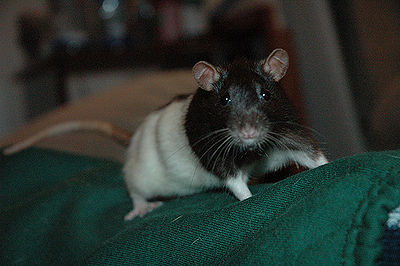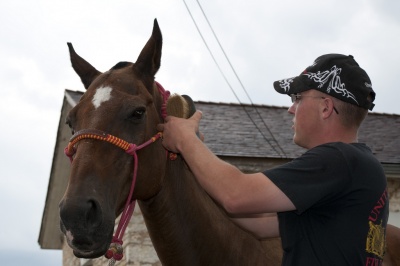
In the early part of 2014, a young boy in California died from the bite of his pet rat.
The illness is called Rat Bite Fever (Streptobacillus monoliforms). It is a bacterial infection that can be transmitted by the animal several ways – a bite or scratch, mucous secretions of the mouth, nose and eyes, urine and feces, contaminated food or water. The Center for Disease Control (CDC) stated that 200 cases of Rat Bite Fever were reported. However, scientists feel that not all incidents were reported to the CDC.
Rat Bite Fever can be transmitted by other rodents such as weasels, gerbils, mice and squirrels. Pet dogs and cats that are exposed can carry the disease and transmit it to humans. We all are guilty of this, but try not to kiss your pets particularly if you are immune-compromised. If you do have any medical conditions, check which pets are safest for you.
There are 2 types of bacteria that cause rat bite fever – Streptobacillosis (common in North America) and Spirellosis (more rare, found mainly in Asia). Haverhill Fever is a form of streptobacillosis. Symptoms include chills and high fever initially, vomiting, sore throat, followed by arthritis and rash mainly on joints and extremities.
Symptoms of streptobacillosis are a red or purple rash with ulcers developing on hands and feet, chills, fever, vomiting, headaches and muscle and joint pain. They can occur 3-10 days after exposure or sometimes as long as 3 weeks later.
Symptoms of spirellosis are similar to streptobacillosis, and include lymph nodes that become swollen or inflamed. Rash appears after the wound partially heals, 7-21 days after exposure.
Diagnosis is made through blood tests, testing bacteria on skin, joints and lymph nodes. Rat bite fever responds to antibiotic treatment.
Prognosis is treated is good although the infection can take a while to clear up.
Rat bite fever can be fatal if left untreated. The infection can travel to the lining of the heart, the covering over the spinal cord and brain or in the lungs.
If you are bitten by a rodent, wash the area thoroughly with anti-bacterial or plain soap. Then call your doctor for treatment. Wash hands after handling any pet.
We cannot stress enough the importance of practicing good hygiene when dealing with pets.



